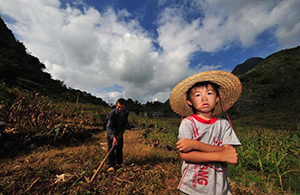Time for parents to understand their kids' importance
By Cai Hong (China Daily) Updated: 2016-06-13 09:03In many white-collar families, the father returns home most nights after the children have gone to bed, becoming a proverbial "guest" in his own house. Although sometimes fathers can be role models and many take an active interest in their children's education, the task of attending to their children's upbringing and education is usually left to mothers.
A joint survey by the ministries of education and labor of employees living outside Tokyo showed that only 8 percent of them returned home before 8 pm and 39 percent after 11 pm.
The early training of children in Japan is aimed at instilling a deep sense of responsibility among them. It includes paying attention to manners and proper social behavior required outside home. Children are taught to behave in ways that are not embarrassing for themselves or others. Self-discipline makes Japanese society orderly, peaceful and harmonious.
It is natural for parents to wish that their children become important members of society. However, if they care too much about what others think, it could affect their attitudes toward discipline-there has to be the right balance between being too strict or too permissive with children.
A recent poll by Japan's cabinet office showed that about 60 percent of the parents accorded top priority to their children's moral behavior, such as politeness and thankfulness, the ability to differentiate between right and wrong, the sense of abiding by public morals and self-dependence.
Even though they may be escorted by their mothers to schools, primary school girls and boys carry their large, sturdy backpacks that contain textbooks and supplies. They might be carrying a second bag for their lunch boxes and water bottles. This teaches children how to take care of their own things.
With very little time and declining authority at home, some fathers use very harsh punishment to discipline their naughty children. The story of Tanooka should serve as a wake-up call to parents, especially very strict fathers.
The author is China Daily Tokyo bureau chief.
caihong@chinadaily.com.cn

I’ve lived in China for quite a considerable time including my graduate school years, travelled and worked in a few cities and still choose my destination taking into consideration the density of smog or PM2.5 particulate matter in the region.











